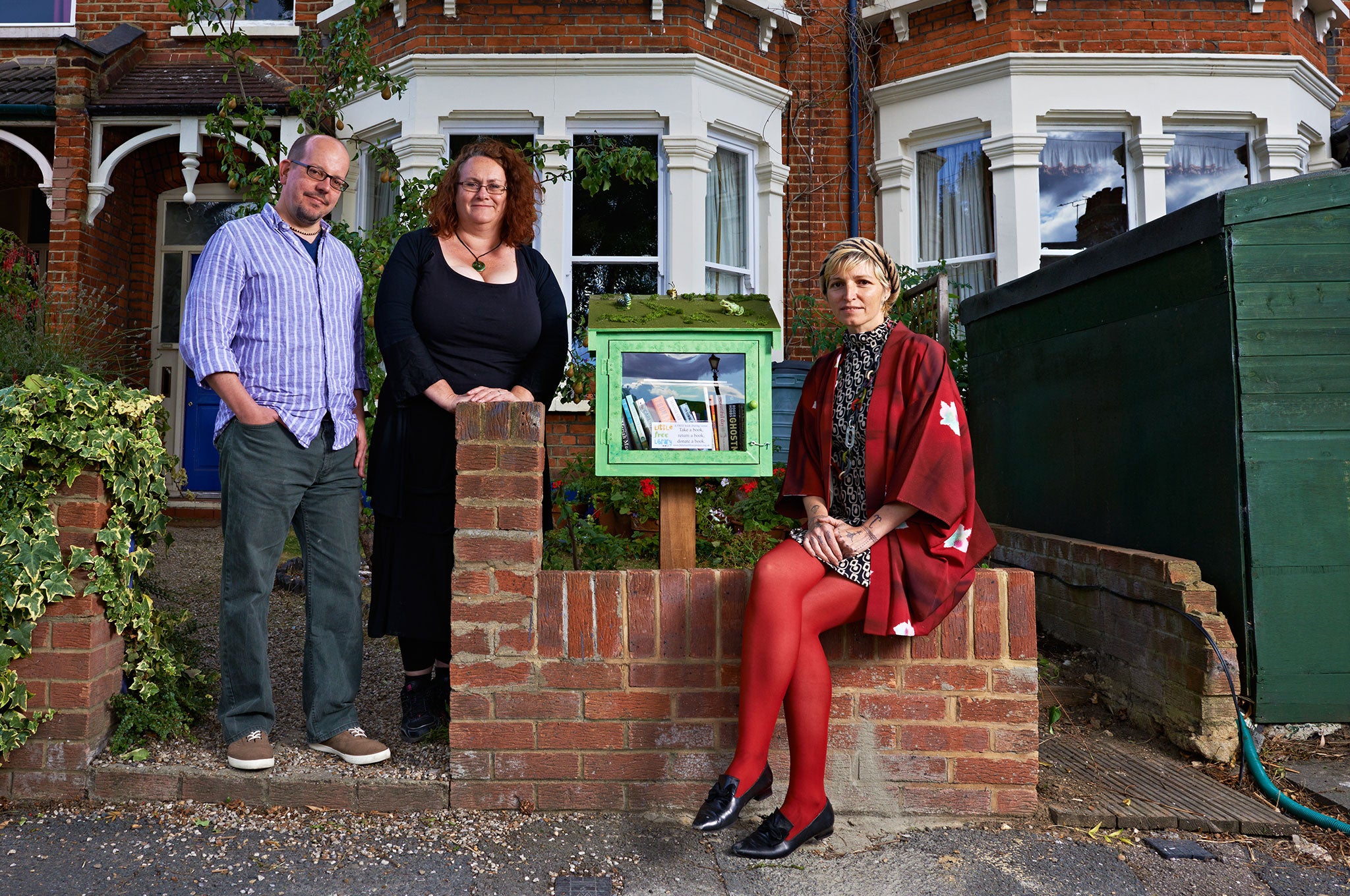Little libraries aim to make a big, big difference
As councils cut funding to mainstream institutions, a not-for-profit organisation is setting up loan schemes in homes, gardens and cafés

At a time when library closures are making the headlines, the idea of opening 100 new ones within a year may seem a little fanciful. But book-loving communities are signing up to help do just that, with libraries popping up everywhere from front gardens to cafés.
The not-for-profit Little Free Library Project (LFLP) is installing small, house-shaped wooden boxes outside the homes or businesses of volunteers who stock them with books. Local people can then help themselves to the titles, or donate their own volumes.
Since launching in May, the project has installed 18 little "libraries" in east and north London, and aims to open 100 across the UK within the next 12 months.
On Saturday, the first one outside London will open near Bromsgrove, in Worcestershire, with further libraries heading to locations including Bournville near Birmingham, Manchester, Hove in East Sussex and Thundersley in Essex.
As well as using their school library, pupils at Frederick Bremer School in Walthamstow, east London, the setting for the Channel 4 series Educating the East End (which screens from 4 September), will soon also be able to swap books at their own little library.
Lauren Sodderland, 37, a curator, wanted to instil a love of reading in her three children – Matilda, six, Astrid, three, and Olive, six months – and has hosted a little library in the family's front garden in Hackney, east London, since early July.
"My favourite bit of the project really has been that it has been used by such a wide range of people in the community and I have got to meet them," she said.
"For the children, it's that they can put on their pyjamas and run out and choose their bedtime story from their own library."
The project is inspired by the Little Free Library scheme, which has become popular in the United States since 2009. Each library is decorated by a local artist. The latest design, unveiled yesterday in Leytonstone, east London, was created by tattoo artist Leticia Molera Vasquez, who took inspiration from Epping Forest, which lies close to the home of library host Felicity Hall.
Social worker Ann Woods, 59, will host a library in Melling, outside Liverpool, soon. "I just think it's a great idea, especially now with libraries closing and people not having as much money to maybe go out and buy books," she said.
Nick Cheshire, 39, who set up the LFLP with his wife, Rebecca, stressed the project was not designed to replace local council libraries but to be an additional source of books. The project has an informal partnership with Waltham Forest borough in London, where little libraries promote events at the mainstream libraries and receive their surplus books in return.
"It's about community engagement, promoting reading, and art," said Mr Cheshire.
The project finances the libraries through crowd funding, but will apply for grant funding once it receives charity status. It is already working with other charities to provide libraries to help engage the communities with which they work and highlight their causes.
Join our commenting forum
Join thought-provoking conversations, follow other Independent readers and see their replies
Comments
Bookmark popover
Removed from bookmarks